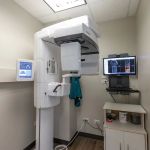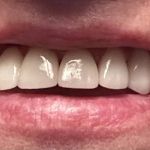How Much Does a Private Dentist Earn? A Closer Look at Private Dentistry Salaries
When I first considered visiting a private dentist, I started wondering about the financial side of things. I’d heard that private dentistry could be expensive, but what about the professionals providing the services? How much do private dentists actually earn? I decided to dig into this question, and the answer I found was more complex than I initially thought. If you’re curious about what a private dentist in the United States earns, you’re in the right place. In this article, I’ll break down the factors that affect private dentists’ earnings and provide insight into how much they make.
1. Factors That Affect a Private Dentist’s Salary
One of the first things I discovered when researching dentist salaries was that there’s no simple answer. The amount a private dentist earns can vary greatly depending on several key factors. Some of the most important factors that influence earnings include:
1.1. Location
Where a dentist practices plays a huge role in how much they can earn. In my experience, urban areas with a high demand for dental services tend to offer higher salaries compared to rural areas. This is because dentists in larger cities can typically charge more for services and have access to a larger client base. For example, dentists in places like New York City or Los Angeles can command higher fees for procedures than those in smaller towns. On the flip side, dentists in rural areas might have lower overhead costs but might also face less competition, affecting their income differently.
1.2. Experience and Specialization
The experience and specialization of a dentist also impact their earnings. A dentist with several years of experience and a solid reputation is likely to charge more for their services. Additionally, dentists who specialize in areas such as orthodontics, periodontics, or oral surgery tend to earn more than general practitioners. I learned that specialists typically charge higher fees for complex procedures, and their specialized skill sets make them highly sought after in the market. A specialist dentist might earn far more than a general dentist, especially if they’re located in a high-demand area.
1.3. Type of Practice
Another factor I found influencing dentist salaries is whether they own their practice or work as an associate in someone else’s. Dentists who own their practice typically have the potential to earn more, but they also bear the responsibility for business expenses such as rent, insurance, salaries for staff, and equipment costs. It can be a risky endeavor, but it also offers the opportunity for greater financial rewards. On the other hand, associate dentists working for a larger dental practice or a group may have a steady income with fewer responsibilities, but they may not have the same earning potential as a practice owner.
1.4. Work Hours and Patient Volume
One thing I learned was that dentists who work longer hours and see more patients tend to earn more. Like most professionals, dentists are paid based on the services they provide. The more patients a dentist can see in a day, the more money they make. However, working long hours can take a toll on a dentist’s health and work-life balance. Some dentists choose to work fewer hours but charge higher fees for their services, balancing their time and income differently.
2. Average Salary of Private Dentists in the U.S.
Now that I had a better understanding of the factors that influence a private dentist’s salary, I wanted to know the average earnings. According to various salary reports, the average income for a private dentist in the United States ranges widely. On average, general dentists in private practice can expect to earn between $130,000 to $220,000 per year, depending on location, experience, and the factors mentioned earlier. However, this figure can be significantly higher for specialists or those working in high-demand areas. Some specialists, like orthodontists or oral surgeons, can earn upwards of $300,000 annually, especially if they work in affluent areas or have a large client base.
While these numbers give a good estimate, it’s important to remember that a private dentist’s income can also fluctuate based on how much work they put in. A dentist who sees a large volume of patients can earn more, but so can a dentist who focuses on high-end procedures or provides specialized treatments. In my research, I found that dentists working in highly affluent areas or with a high-demand specialty could earn even more—sometimes significantly more—depending on the practice’s success and the clientele.
3. Additional Income Streams for Private Dentists
While many dentists earn a good income through their practice, some also supplement their earnings with additional income streams. This could include:
3.1. Teaching or Lecturing
Some experienced dentists teach at dental schools or offer private lectures, which can be an additional source of income. I found that many established dentists enjoy giving back to the profession by mentoring new graduates or teaching advanced dental techniques. Teaching can also be an enjoyable way for dentists to stay connected to their field while supplementing their income.
3.2. Selling Dental Products
Another avenue for extra income is selling dental products such as dental tools, whitening products, or specialized dental equipment. Some dentists have partnerships with dental manufacturers or distributors, allowing them to earn a commission on sales. This can be a great way to increase income, especially for dentists with a loyal client base who trust their recommendations.
3.3. Expanding Services
Many private dentists also expand their services to include cosmetic dentistry, such as teeth whitening, veneers, and implants. These procedures often command higher fees, and many patients are willing to pay more for cosmetic enhancements. This can significantly increase a dentist’s income, especially if they develop a reputation for being skilled in cosmetic procedures.
4. Challenges That Can Affect Earnings
Despite the potential for high earnings, there are several challenges that private dentists face, especially in managing their income. Operating a dental practice comes with considerable expenses, including office rent, staff salaries, insurance, and dental equipment. I learned that while dentists can make a good income, they must also be skilled business owners to maintain profitability and cover these overhead costs. Additionally, patient volume can vary depending on the economy, competition, and patient satisfaction, which can influence a dentist’s overall income.
Furthermore, dentists who work in underserved or rural areas might find that their earnings are lower, simply because there are fewer patients or less demand for certain services. However, this can be offset by lower overhead costs compared to dentists in large cities, where expenses are typically higher.
5. Conclusion: The Rewards and Realities of Private Dentistry
Becoming a private dentist can be a lucrative career, but it’s important to understand that the amount you earn will depend on many factors. Location, experience, specialization, and the type of practice all play a role in determining how much a private dentist can make. Whether you’re thinking about becoming a dentist or just curious about the field, the financial potential is there, but it requires hard work, dedication, and the ability to manage both clinical and business responsibilities effectively.







 Millennium Park Smiles4.0 (179 review)
Millennium Park Smiles4.0 (179 review) Laurie Gormley DDS3.0 (6 review)
Laurie Gormley DDS3.0 (6 review) Alpha Dental Excellence4.0 (829 review)
Alpha Dental Excellence4.0 (829 review) Dr. Gary Manukyan, DDS4.0 (35 review)
Dr. Gary Manukyan, DDS4.0 (35 review) Gessel Orthodontics5.0 (565 review)
Gessel Orthodontics5.0 (565 review) Lind Dental Care5.0 (97 review)
Lind Dental Care5.0 (97 review) The Importance of Oral Health Education During Pregnancy for a Healthy Pregnancy
The Importance of Oral Health Education During Pregnancy for a Healthy Pregnancy Best Tips for Brushing Your Teeth Properly for Healthy Gums: Essential Techniques for Oral Health
Best Tips for Brushing Your Teeth Properly for Healthy Gums: Essential Techniques for Oral Health Why Skipping Dental Checkups Can Lead to Bigger Oral Health Problems
Why Skipping Dental Checkups Can Lead to Bigger Oral Health Problems Advantages of Porcelain Dental Restorations
Advantages of Porcelain Dental Restorations How Can Diabetes Cause Tooth and Gum Problems? Preventing and Managing Oral Health Issues
How Can Diabetes Cause Tooth and Gum Problems? Preventing and Managing Oral Health Issues Healthy Habits for Promoting Good Oral Health and Hygiene: Tips for a Healthy Smile
Healthy Habits for Promoting Good Oral Health and Hygiene: Tips for a Healthy Smile